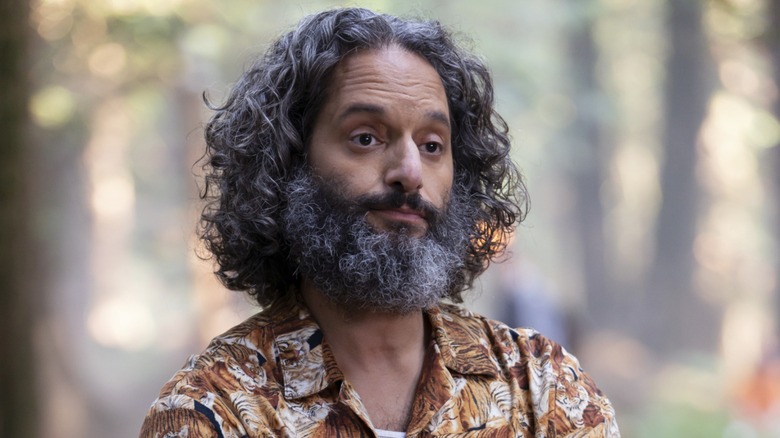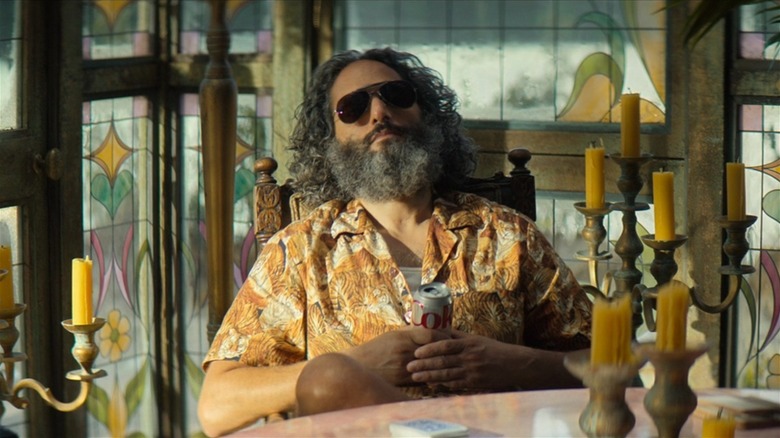Why Mr. D (Aka Dionysus) Really Hates Percy Jackson In The Lightning Thief
Dionysus — or Bacchus, as he is known to the Romans — has flitted in and out of pop culture to varying degrees. A source of villainy in the "True Blood" timeline, Mr. D is a different flavor of the wine god in Rick Riordan's book series, "Percy Jackson and the Olympians." In the Percy Jackson timeline, Dionysus is the director of Camp Half-Blood and also has a dislike for the title character.
When Percy arrives at the camp, Dionysus takes no personal interest in him and even subjects him to mockery. Dionysus is surly to begin with because being the camp director is a punishment from Zeus, who forbids him from partaking in wine. However, his dislike of Percy stems from the young boy's role as a hero. The son of Poseidon, Percy is one of the most powerful demigods with a destiny of doing heroic acts. In "The Lightning Thief," Chiron sends Percy, Grover, and Annabeth on a quest to recover Zeus' stolen lightning bolt. Others may be impressed with a bunch of 12-year-olds going on this Odyssey, but Mr. D has a different perspective.
One of the more jaded characters in the series, he disdains any heroic acts. In "The Titan's Curse," Dionysus calls out Percy for the hypocrisy of half-bloods. While demigods accuse the gods of being selfish, heroes are just as bad. Percy is probably one of the least deserving of this treatment, but Mr. D's feelings on the subject run deep.
Mr. D is reacting to trauma
In the Disney+ series, "Percy Jackson and the Olympians," Jason Mantzoukas' portrayal of the Diet Coke swilling god may seem like your typical uninterested caretaker. However, he has wounds that run deep.
Dionysus' distaste for heroes runs far into the past and is the reason that he meets his wife, Ariadne. Ariadne was a princess of Crete and the daughter of the cruel king, Minos. He was most notable for demanding tributes to fight the terrifying Minotaur. One day, a hero named Theseus arises, determined to defeat the Minotaur once and for all. Ariadne promises to help in exchange for marrying Theseus, who agrees to take her away from her father. After defeating the Minotaur — something that could not be possible without Ariadne's help — he abandons her, leaving her on the island of Naxos.
Dionysus happens upon her and becomes moved by her heartache and pleading to the gods to curse Theseus. After comforting her, they fall in love and get married. His affection for his wife is so strong that after her death, he goes to the Underworld and makes her an immortal goddess. They share a pure love, but Dionysus can never forgive the damage these so-called heroes do. Just because they are children of gods, they think that they are above everyone else. It doesn't help Percy's case that Theseus also happened to be the son of Poseidon. Seeing another son of the god of the seas is probably salt in the wound for Dionysus, a constant reminder of how his wife was abandoned and heartbroken.

